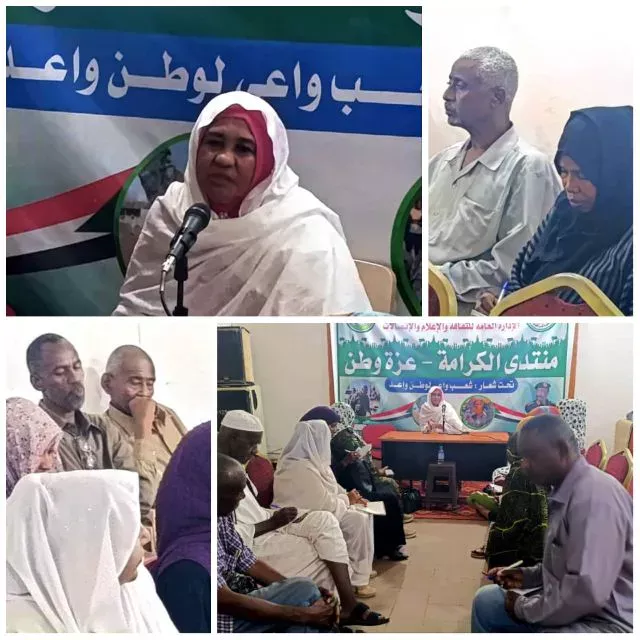Thanks to her visit to the locality of Shendi.. Dr. Najda Al-Zubair Arbab gives economic information on the role of her ministry in the development of agriculture and livestock

Shindi: Khaled Muhammad Al-Baqir
🟢 The economic awareness session, organized by the Khartoum Expatriate Media Association in River State, Shendi locality, witnessed a speech on the vital role of the ministry in strengthening the local economy through projects that improve agricultural and livestock production. The ministry's work plans and mechanisms used in goat crossing and breed improvement were presented, which contribute to increasing production efficiency and improving breed quality. Dr. Najda Arbab highlighted the experiences gained from previous experiments and the effectiveness of goat hybridization initiatives, especially in many agricultural areas.
The ministry is considered one of the main factors in strengthening the local economy, as it contributes to the design and implementation of strategies to develop the agricultural and livestock sector. Through the implementation of specialized projects, the ministry seeks to empower farmers and breeders by providing them with advice and training, so that they can make the most of available resources. This helps create new employment opportunities and improve the standard of living of local communities.
Goat hybridization strategies are based on the application of precise scientific methods and the use of modern eugenic techniques. Emphasis is placed on the skills needed to raise all types of goats, including Turkish-Sudanese goats. These strategies aim to increase productivity and improve the quality of meat and milk in order to obtain the best economic return for farmers.
The Turkish-Sudanese goat hybridization experiment was one of the most successful initiatives in recent years. This experience improved genetic traits and increased production capacity, benefiting local farmers. Evaluating this experience is an essential part of understanding the long-term effects of these plans and how to improve them for better results in the future.
Pasture improvement is a unique unit of environmental sustainability. The ministry focuses on the development of pastures because they are necessary to maintain environmental balance. By promoting sustainable agricultural practices, multiple benefits are achieved, including land improvement and increased biodiversity.
The Fire Lines project aims to protect pastures from fires and thus contributes to preserving agricultural land. This project aims to provide a secure boundary that protects species-bearing grasses and plants from natural threats. This effort is part of the ministry's commitment to protecting the environment and improving agricultural production.
Seed dispersal programs are an essential element in improving agricultural production. These programs help farmers select high-quality seeds adapted to local conditions. Thanks to these programs, production capacity is strengthened and self-sufficiency in agricultural crops is achieved.
Developing the skills and knowledge of farmers and breeders is an integral part of the ministry's strategies. The awareness plans aim to enable them to adopt better practices, which helps to raise the level of productivity. These training programs aim to improve the efficiency of agricultural and livestock practices, which increases economic benefits.
Livestock and fisheries projects are considered an important part of the agricultural policies adopted by the ministry. Investments in these projects represent opportunities to improve local food production. The ministry aims to implement comprehensive plans that encourage the development of these vital sectors, which helps protect national wealth and improve the local economy.
At the conclusion of the session, the importance of…
The ministry's efforts to achieve sustainable development through well-thought-out and clear strategies. Cooperation between all parties involved plays a central role in the success of these efforts, paving the way for a prosperous future in the agriculture and livestock sector.





